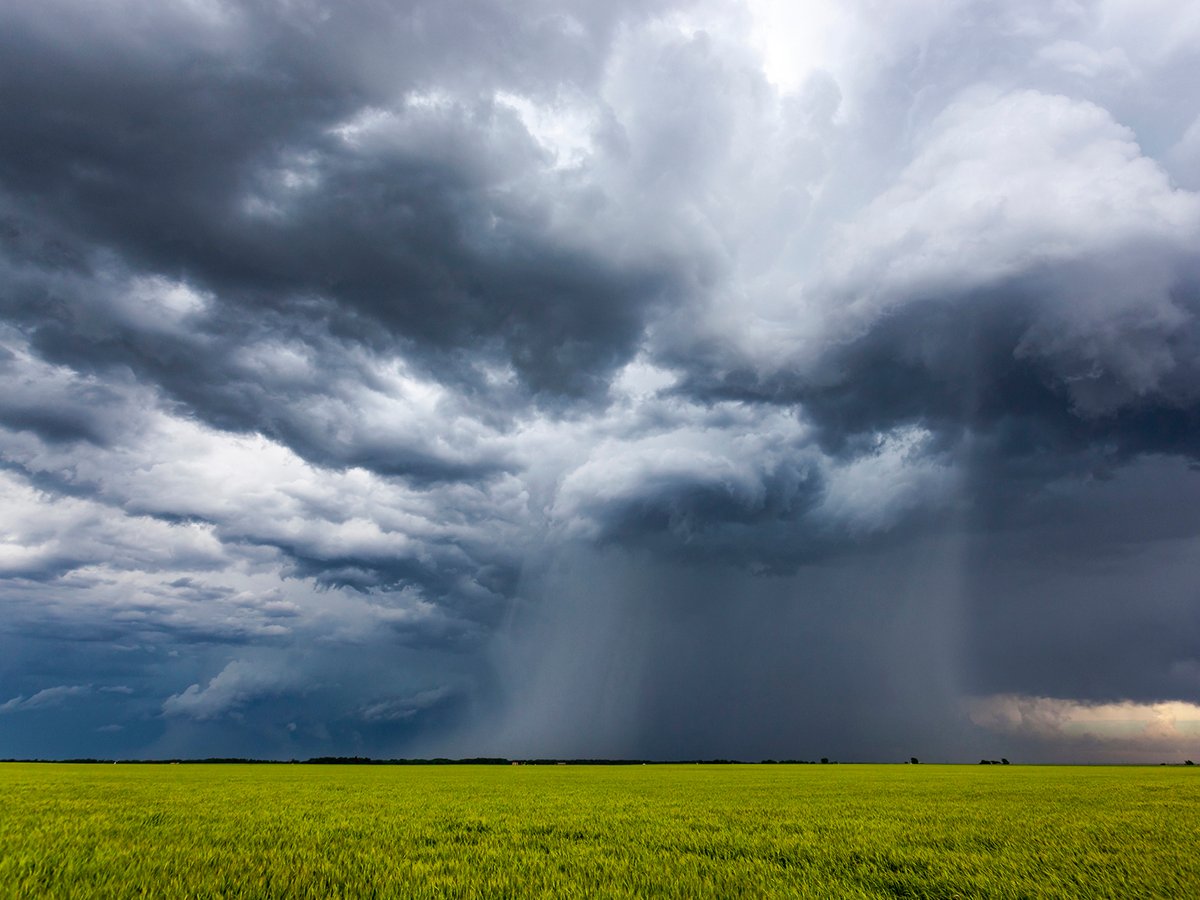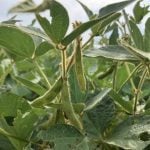They’re not popping champagne corks just yet, but a group of farmers
with an undying dream to own a pasta plant are starting to ice the
bottles.
Prairie Pasta Producers chair Perry MacKenzie is holding off the
celebration until the farmer-owned co-op has loaded its first rail cars
of durum.
“For us it will be a monumental occasion to think that we’ve actually
accomplished that,” said MacKenzie.
The new generation co-op has inked a deal with Dakota Growers Pasta
Read Also

Extreme rain increases as planet warms
In this issue, we are going to wrap up our look at extreme rainfall by examining the different weather patterns that tend to be associated with these rainfall events.
Co., the third largest producer of dry pasta in North America.
“They’ve offered up approximately three million of their D-series
delivery shares to Prairie Pasta members,” MacKenzie said.
Earlier this summer Dakota Growers converted to a corporation from a
co-op, and in the process created two classes of shares – delivery and
equity.
Members of Prairie Pasta have the option to buy up to three million
delivery shares for 20 cents a share, said MacKenzie. Each share
entitles the holder to deliver one bushel of durum to Dakota Growers’
plant in Carrington, N.D.
If the group’s members buy all three million shares before the option
expires on Nov. 25, 2003, the co-op would own approximately one-quarter
of the plant’s D-series shares.
Prairie Pasta has been trying to buy a pasta plant since 1999. The
co-op’s original plan was to build its own $120 million durum mill and
pasta plant in a Canadian community such as Weyburn, Sask. The board of
directors decided against that plan after a feasibility study showed
the North American pasta industry was overbuilt.
Weyburn durum farmer and Prairie Pasta member Brian Goranson thinks it
was wise to back away from the original plan. He wouldn’t have invested
in such an ambitious project but he might be willing to invest in the
Dakota Grower venture.
“I would certainly look at moving some product in there if it looks
like it could be a savings to me,” he said.
“Maybe this alliance with the North Dakota group is a good first step.”
But one part of the deal makes him nervous. American farmers recently
launched their 10th trade challenge against the Canadian Wheat Board
and are once again asking for tariffs on Canadian wheat and durum
imports.
“They’re pretty sensitive on Canadian grains going over to the United
States. That market has some question marks,” Goranson said.
“I can see problems coming down the road if there is a large quantity
of product moving into the U.S. from Canada.”
MacKenzie hope farmers like Goranson will put aside those fears and
snap up shares in the North Dakota plant.
The shares would officially be held by the co-op to save on legal
costs, but each farmer would be paid dividends and allocated delivery
privileges based on the number of shares they own.
The group has also worked out an arrangement with the wheat board where
Prairie Pasta would act as an accredited exporter. That gives the co-op
the right to deliver durum to the North Dakota plant once it buys it
back from the board through the producer direct sale process.
MacKenzie said D-series shareholders will get first crack at Dakota
Growers’ annual dividends before the equity, or E-series shareholders.
But the real benefit for farmers will be the premiums they get by
delivering grain into an identity preservation system and through the
savings they realize on freight costs.
The Dakota Growers’ plant wants durum that meets specific quality
standards based on sedimentation characteristics.
“The product is targeted at the high-end use customer. It’s going to be
for the restaurant trade,” MacKenzie said.
“We hope to be able to create a premium in this for our members and
growers.”
He said the plant’s proximity to Canada’s prime durum-growing region
should also generate transportation savings for farmers. As well, durum
won’t have to be cleaned to export standards because the mill has its
own cleaning plant.
Those anticipated cost savings appeal to Goranson, who said he now pays
close to $1 per bu. to get his durum to market.
“If we could reduce some of our costs, that certainly would make the
deal work.”
Approximately 200 farmers have already bought memberships in Prairie
Pasta, which sell for $200.
Initially, it was thought that only a portion of them would be able to
participate in the Dakota Growers’ program because the plant wanted AC
Avonlea durum. However, the program was opened up after other varieties
sent to the plant tested favourably.
MacKenzie said the cost of buying shares will be taken off producers’
cheques when they deliver their first load of durum.
“Nobody is going to have to go and take money out of cash flow or
anything else in order to pay for these shares up front,” he said.
Prairie Pasta members who participate in the program will be allowed to
deliver as many bushels as they have shares. If a farmer is unable to
meet a delivery obligation in a particular year, that allocation would
be reassigned to another Prairie Pasta member.
The co-op is still hashing out some details of the program, such as
where farmers will be allowed to deliver their grain and what kind of
buy-back price can be negotiated with the wheat board.
MacKenzie said it has been a long, arduous process but the end is in
sight and he is looking forward to the day when those first rail cars
are loaded with prairie durum.















